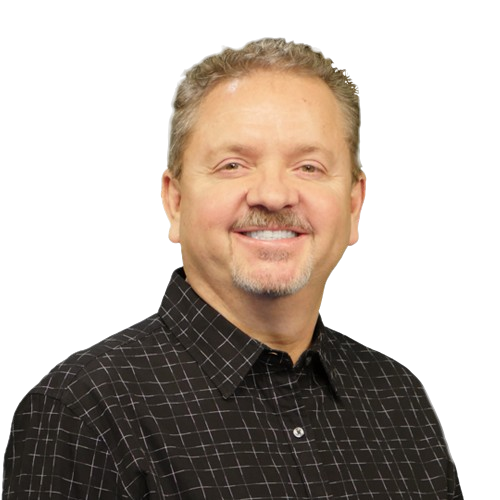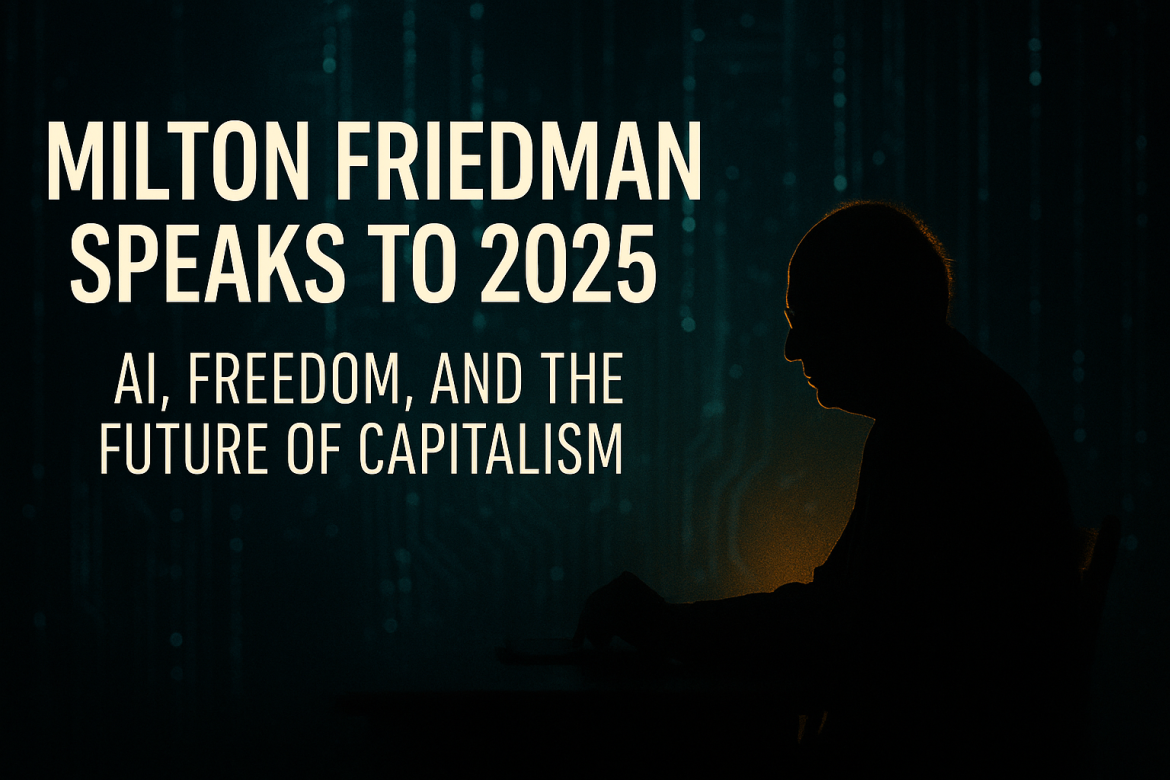Five Things We Will Learn
- Why Milton Friedman—if alive in 2025—would defend free-market capitalism as the most proven system for prosperity in the age of AI.
- How AI follows the historic pattern of transformative technologies that raise productivity, create new industries, and expand human freedom.
- Why concentrated control of AI by a handful of tech elites poses a profound threat not to capitalism but to liberty itself.
- How the “you will own nothing and be happy” vision mirrors historical patterns of centralized planning and modern digital feudalism.
- What Friedman’s solutions would be today—open markets, strict limits on monopolies, property-rights protection, and policies that share AI’s gains without destroying incentives.
Why We Need Friedman’s Voice Again
In times of economic upheaval, it is wise to return to the clearest voices who understood freedom, prosperity, and the dangers of concentrated power. Few spoke with more clarity than Nobel economist Milton Friedman. His lifetime of studying capitalism, central planning, and human behavior gave him an almost prophetic lens into moments like the one we are now living. If he were alive today—watching the rise of artificial intelligence, the consolidation of global tech power, and the growing push from elites toward a world where “you will own nothing and be happy”—what would he say? Would he still argue that capitalism is the most effective system for human flourishing? Based on everything he taught, the answer is unmistakably yes. And if Friedman could address the world of 2025, it might sound something like this.
If Milton Friedman Were Alive in 2025…
If I, Milton Friedman, were alive today in 2025 and looking at this explosion of artificial intelligence, the prospect of a 50% reduction in the workforce, the concentration of economic power in the hands of a few tech titans, and the cheerful slogan coming out of Davos that “you will own nothing and be happy,” I would say the following—clearly and without apology to no one.
Capitalism—the system of voluntary exchange, private property, and free markets—has been the greatest engine of human prosperity and human freedom the world has ever seen. It lifted billions out of poverty in a historical blink of an eye. Artificial intelligence is simply the latest and most powerful chapter in that story. Like the steam engine, electricity, and the microchip before it, AI is a general-purpose technology that dramatically increases the productivity of human labor.
When productivity rises, real wages rise, new industries are born, and—crucially—new jobs appear that we cannot even imagine today. The Luddites feared the spinning jenny; the teamsters feared the truck; the typists feared the word processor. They were all wrong, and the doomsayers about AI will be wrong too.
A 50% reduction in the labor force is not a bug in capitalism; it is the feature. It means that the same standard of living—or a far higher one—can be produced with half the human toil. That is liberation, not catastrophe. The real question is: who captures the gains, and how do we make sure the system remains open so that new entrants can challenge the giants?
Where the Concern Begins: Concentrated Power
Here is where I become deeply worried.
When a few companies—Google, Microsoft, OpenAI, Meta, Amazon—control the crucial layers of the AI stack (chips, cloud, models, data), and when governments hand them monopoly privileges through intellectual-property law run amok, regulatory moats, and national-security excuses for protectionism, we are no longer talking about free-market capitalism. We are talking about crony capitalism, or what my friends in Latin America used to call “capitalismo de compadres.”
Economic power becomes concentrated in fewer and fewer hands, and those hands quickly reach for political power to protect their position. That is the road to serfdom, not the road to prosperity.
The Danger of the Davos Vision
The Davos crowd’s vision of “you will own nothing and be happy” is the logical endpoint of this perversion. It is feudalism with better marketing.
If everything is a subscription, if your home is leased from BlackRock, your car is leased from Uber, your furniture is leased from some Swedish billionaire’s “circular economy” fund, and even your digital identity and attention are leased back to you by the platforms, then private property—the cornerstone of freedom—has been abolished in all but name.
They call it “stakeholder capitalism” or “inclusive capitalism,” but it is central planning with extra steps—the same error that doomed the Soviet Union: the belief that a tiny elite can allocate resources more wisely than millions of individuals acting in their own interest and coordinating through prices.
Friedman’s Answer for 2025
My answer is simple and old-fashioned:
Keep markets open. Break up concentrations of power—private or public—that threaten competition. Antitrust is not because big is bad, but because unchallenged bigness married to government power is deadly.
Keep intellectual-property terms short and narrow. Twenty-year software patents and endless copyright extensions are not incentives to innovate; they are grants of monopoly privilege.
Reject industrial policy, “national champions,” and government “investment” funds that pick winners. The government has no money of its own—only yours—taken by force.
Establish a negative income tax or some other mechanism so that the enormous gains from AI are widely shared without destroying the incentive to work and create. A rising tide must actually lift all boats, or the boats will be burned.
Above all, defend private property with ferocity. The right of every man and woman to own the fruits of their labor, to own land, a home, a business, shares in enterprise—that is the difference between free men and serfs. Anyone who tells you that you will be happier renting everything from your betters is selling you back your own chains with a smile.
Freedom or a High-Tech Serfdom
Capitalism did not fail when the horse was replaced by the automobile; it triumphed. Free-market capitalism will not fail when the human brain is augmented by silicon; it will triumph again—if, and only if, we keep the system free, competitive, and rooted in the institution of private property.
The alternative—the “great reset,” the “new social contract,” the “you’ll own nothing and be happy” future—is nothing more than a high-tech version of the oldest tyranny in history: rule by an arrogant elite that believes it is fit to plan the lives of everyone else.
I have seen that movie before. It does not end well.
—Milton Friedman
(Chicago, if I were still there, 2025)




